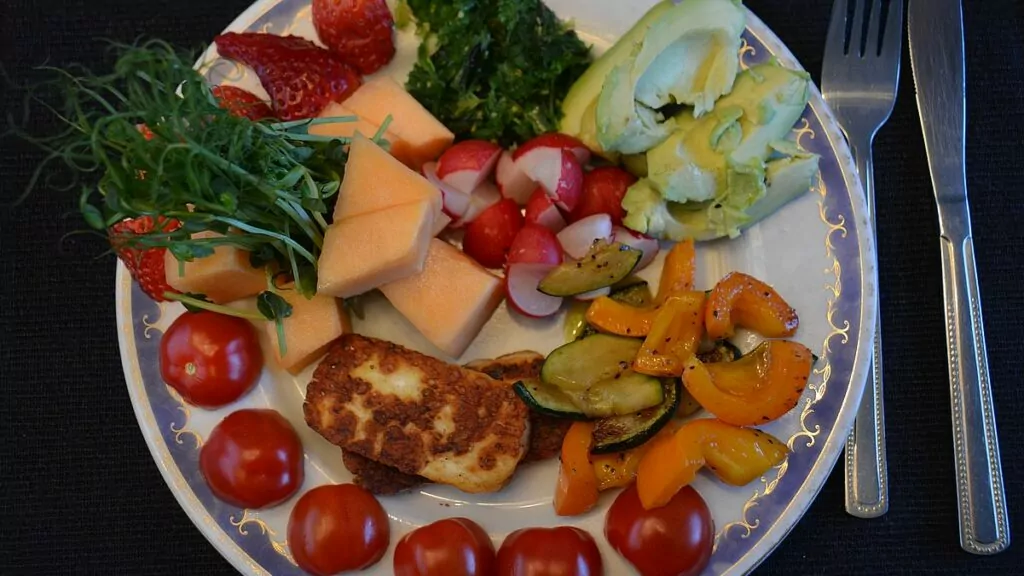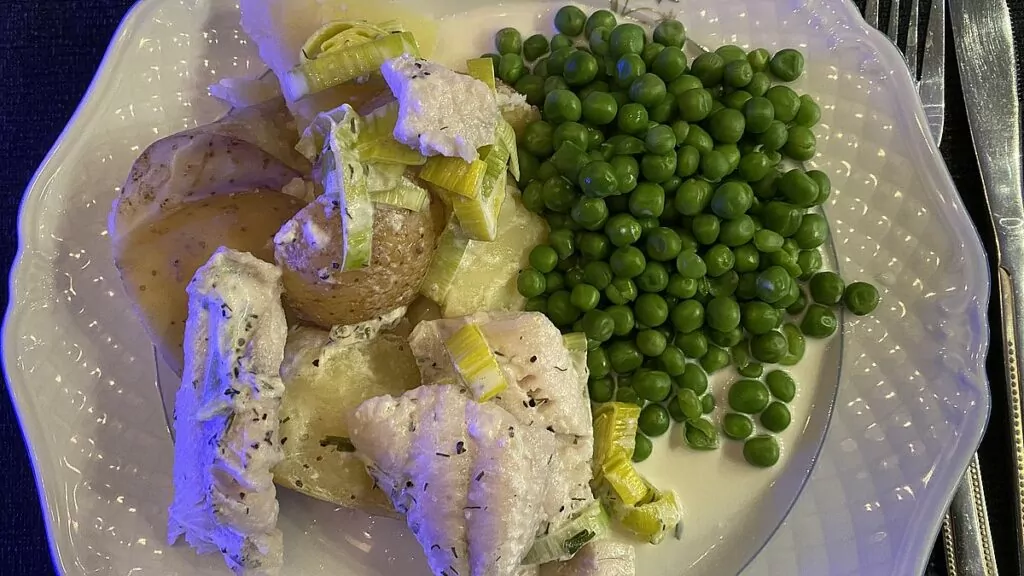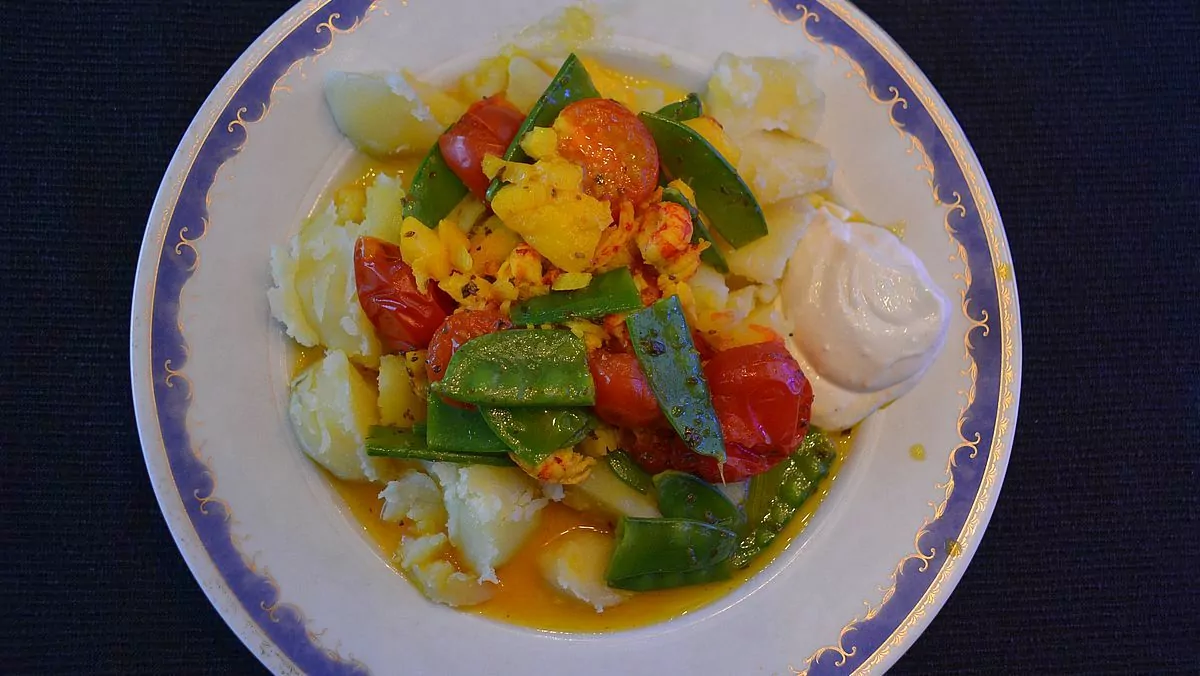Healthy eating tips - when does it become a point of reference? When you work with health and food, you wrestle with this all the time, I promise. I was going to finish my Wednesday theme on food and health, but I got requests to continue... and yes, I have more to write on this topic!
Innehållsförteckning
Wednesdays on food and health
This is a travel blog, but until you can travel, it's perfect to think about your health! I have a PhD in public health science (a total of 9 years of studies at Karolinska Institutet), and have focused on eating habits and physical activity, so why not talk about that? Here are some of my previous posts in the series:

Tips, advice and information on food - is it advice?
One of the most difficult aspects of working with public health issues is probably how to provide good information. It is is tricky - don't say anything else! One way to understand the tricky part is to look at different ethical principles.
- The principle of goodness - to do good
- The principle of non-harm - to do no harm
- The principle of fairness - to be fair
- The principle of autonomy - to respect people's own decisions
"If you look at the bottom principle, you should respect people's decisions and choices, and that's what can be provocative about food advice, that it feels like an intrusion into something as private as what people want to eat. Why should society interfere with what you eat for dinner? If it lands the wrong way, it can definitely feel like pickling sticks.
On the other hand, if you look at the other ethical principles, it is difficult to completely avoid providing information. If you know that certain fish contain heavy metals and can harm a foetus, for example, then it is important to provide information about it. When it comes to the principle of fairness it is also about considering how the information reaches everyone, not only you but also those who may have a cognitive disability or a different mother tongue.

6-8 slices of bread a day
Do you remember the derided 'The National Board of Health and Welfare recommends 6-8 slices of bread a day' campaign from the 1970s? It was the authorities that were mocked for it, but in fact it was the Bread Institute, the bakery's PR organisation, that was behind it. Money talks, as always. But the reaction to the campaign says a lot about the way people are not want to get dietary advice. When someone pushes specific advice in your face, which you haven't asked for, you think it's being pickling sticks.

Healthy eating tips for today
Today, the social climate is completely different from the 1970s, and there are many voices making themselves heard. When it comes to food and health, these voices include governments, food producers, health food retailers, authors, bloggers and many, many others. Where do you look for information and tips on healthy eating? When do you get annoyed and feel that the information is being given to you? What do you think should be done to ensure that good information also reaches those who do not have the same opportunities as you?


















Christian says:
Yes, it is interesting how many "dietary advice" is actually successful PR work from companies that have an agenda behind this advice. For example, all "sugar-free" with sweeteners that we now see all the health disadvantages of!
10 February 2021 - 8:19
Helena says:
There are many companies that make money by promoting what is healthy, from food producers and supplement manufacturers to authors of health books... it's true!
10 February 2021 - 17:42
Solan says:
We eat according to the principle of "just enough of everything". Keep up with health issues reasonably well.
However, I am sceptical about all the alarms that pop up at regular intervals.
No need to point fingers at Freedom, you are a very open-minded and sensitive person.
Who also have solid knowledge on the subject and not just think! 😊👍
10 February 2021 - 8:24
Helena says:
Those "alarms" you can probably usually have a relaxed attitude to. The media earns on clicks so they earn on making a chicken out of a feather 😉 And thank you, thank you for nice words! Wish you a continued nice Wednesday!!!
10 February 2021 - 17:44
4000mil says:
I rarely, if ever, perceive it as advice from authorities and researchers. On the contrary, I appreciate and like reading about what really makes a difference in a healthy lifestyle.
On the other hand, I can get quite tired of private individuals and laymen who are "newly saved" and express themselves with certainty and judgement. 🙂
Worst of all, people who are guests in my home and make judgemental statements about foods I have at home. (yes it happens sometimes!)
10 February 2021 - 8:35
Helena says:
I can really recognise myself in what you describe. I have also experienced similar at some point and it is definitely uncomfortable. On a private level, you simply have to respect each other's food choices. If somebody asks for advice, that's one thing, but otherwise it's a bit weak ...
10 February 2021 - 17:45
Inga+Magnusson says:
Here we eat mostly game meat of various kinds, good and healthy and environmentally perfect, taken from the forest around us. We still have our own potatoes in the root cellar. What is difficult to get are Swedish vegetables, not always available in our local store and in Corona times we do not want to go further away for shopping. But we buy anyway, we have to eat vegetables, both for the flavour and the nutrition. Chicken is Swedish, quite ok. But fish is the big dilemma, all salmon seems to be farmed in Norway, not good from any aspect, but we still buy sometimes. Brobergs which has wild salmon, is too far away.
10 February 2021 - 9:03
Helena says:
Great to have access to wildlife in this way! I can understand that it is difficult to access certain products depending on where you live. Then you have to adapt of course.
10 February 2021 - 17:47
Inga+Magnusson says:
Forgot to say that we have been doing 5:2 for over 6 years! It's perfect for us, we keep the weight off and the body gets a rest from heavy digestion two days a week. The other days we do not have to look at calories but can eat what we like, including whipped cream and delicious bea! ;- ) Doesn't suit everyone but works for us.
10 February 2021 - 9:07
Helena says:
I think like you, this type of diet is suitable for some people but not for others. Glad you found something that works for you!
10 February 2021 - 17:47
Nils-Åke+Hansson says:
It is important to eat healthily and in moderation. Fish twice a week
10 February 2021 - 9:08
Helena says:
We also like fish! Tasty and healthy at the same time 🙂
10 February 2021 - 17:48
Lena+i+Wales+och+Spanien says:
Thank you for continuing this theme. I like it.
Many good and interesting thoughts.
I remember 6-8 slices of bread per day. Guessed that it was corrupt even then.
You can point things out, without using pointers. Give information and then it's up to each person to take it in and make a judgement.
As I've written before, I'm a big believer in the principle of learning what's good and what's not, and then deciding what you want to do. The main thing is that you know what you are doing.
I think you organise your posts very well, thank you!
10 February 2021 - 11:55
Helena says:
It's great to hear that you like my health posts Lena! Thank you for the nice criticism! 🙂 And of course it is as you say. Sometimes you choose to eat certain things for completely different reasons than just usefulness, but if you have a little control, you can choose yourself how to prioritise!
10 February 2021 - 17:50
BP says:
"Food trends" come in waves. What was "in" just a few years ago is totally "out" today. So I have stuck to common sense and moderate portions.
Understand that it may not be easy to "teach" what is good to eat and what is not. I'm not very knowledgeable/interested. I think that you can "look just as you want", as long as you feel good about yourself and do not have health problems due to too low or too high weight.
10 February 2021 - 21:04
Lena - gott för själen says:
I like your posts, so it's great that you continue.
I don't think I have ever seen or heard anyone giving advice. Those who perceive comments or information as lectures probably think that they should perhaps absorb the information and act accordingly, but do not have the "ability". You feel like you've been hit and it's hard to hear the truth.
I can imagine that it will be a little extra sensitive for you to talk about diet and exercise because you work with it. It becomes more difficult to argue against you.
Hug Lena
14 February 2021 - 14:05